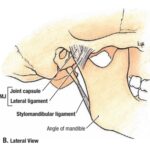These Guidelines were developed by the Canadian Society for Exercise Physiology (CSEP), the Healthy Active Living and Obesity Research Group (HALO) at the CHEO Research Institute, the Faculty of Physical Education and Recreation at the University of Alberta, the Public Health Agency of Canada, ParticipACTION and a group of leading researchers from Canada and around the world, with input from over 600 national and international stakeholders. They are fairly comprehensive, and working towards any of these will result in health benefits!

